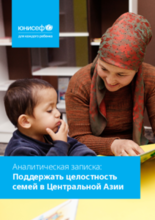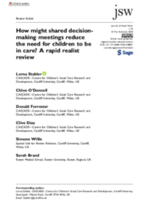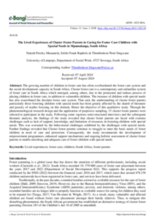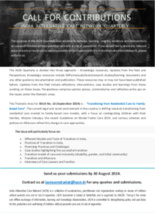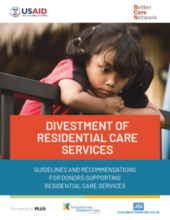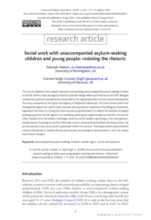Demographic Data
|
Sources: World Bank, UNICEF, UNDP HDR 2015, DHS 2013 |
Displaying 141 - 150 of 14551
Каждый ребенок имеет право расти в способствующей развитию семейной среде.
This UNICEF policy brief finds that an estimated 203 children for every 100,000 children live in residential care across Central Asia – almost double the global average of 105 per 100,000. In this brief, UNICEF proposes seven policy recommendations to facilitate the closure of large-scale institutions and transition to family-based alternatives to institutional care in Central Asia.
The aim of this review is to articulate the key mechanisms through which shared decision-making meetings can work to help keep children safely out of care and at home. Data from the literature was supplemented with consultation to ensure relevance to the UK setting.
This qualitative study of cluster foster parents in Mpumalanga, South Africa, revealed that they are faced with extreme challenges such as lack of support, knowledge, and limitation of resources in fostering children with special needs.
India Alternative Care Network (IACN) is calling for contributions to the 16th edition of IACN Quarterly.
IACN and CTWWC are inviting applications/names of the passionate and dedicated individuals, who are committed to promoting family strengthening and alternative care for children in India. This training is open for those who are committed to promoting alternative care, have been engaged in and promoting deinstitutionalization, non institutional care practices such as foster care, kinship care.
Case studies from Peru, Cambodia and DRC provide lessons on how income support can contribute to keeping children safe.
These guidelines have been written to guide donors and partners through the process of gathering information, making the decision to divest, securing buy-in internally for divestment, engaging with partners and stakeholders, developing a divestment plan, communicating that plan, and addressing any child safety concerns.
Historical discrimination, reduced resources, cultural misunderstandings, and legal uncertainties create a challenging environment for migrant families
This article addresses the complex dynamics surrounding unaccompanied asylum-seeking children in the UK.

